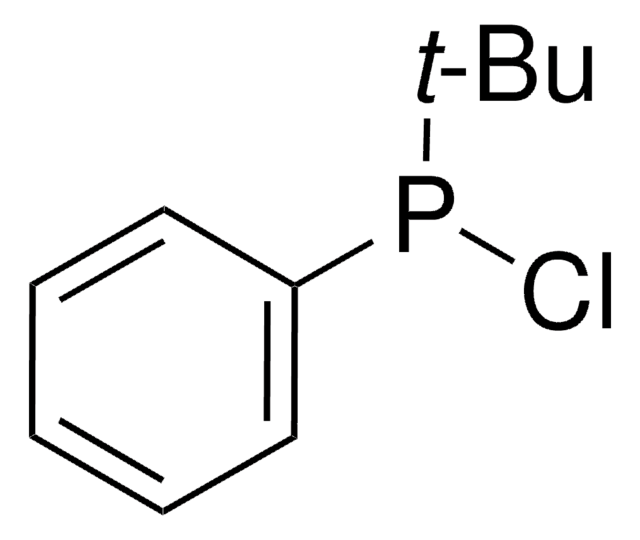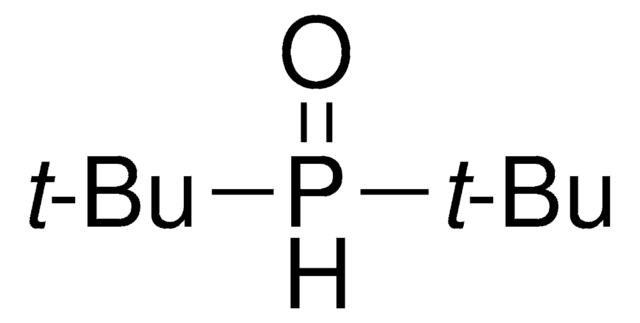About This Item
Recommended Products
vapor density
3.79 (vs air)
vapor pressure
760 mmHg ( 160 °C)
reaction suitability
reaction type: Buchwald-Hartwig Cross Coupling Reaction
reaction type: Heck Reaction
reaction type: Hiyama Coupling
reaction type: Negishi Coupling
reaction type: Sonogashira Coupling
reaction type: Stille Coupling
reaction type: Suzuki-Miyaura Coupling
reagent type: catalyst
reagent type: ligand
refractive index
n20/D 1.578 (lit.)
bp
160 °C (lit.)
density
0.6912 g/mL at 25 °C
1.001 g/mL at 25 °C (lit.)
functional group
phosphine
storage temp.
−20°C
SMILES string
Pc1ccccc1
InChI
1S/C6H7P/c7-6-4-2-1-3-5-6/h1-5H,7H2
InChI key
RPGWZZNNEUHDAQ-UHFFFAOYSA-N
Looking for similar products? Visit Product Comparison Guide
Related Categories
Signal Word
Danger
Hazard Statements
Precautionary Statements
Hazard Classifications
Acute Tox. 4 Oral - Aquatic Chronic 2 - Asp. Tox. 1 - Eye Irrit. 2 - Flam. Liq. 2 - Repr. 2 - Skin Irrit. 2 - STOT SE 3
Target Organs
Central nervous system
Storage Class Code
3 - Flammable liquids
WGK
WGK 3
Flash Point(F)
-14.8 °F - closed cup
Flash Point(C)
-26 °C - closed cup
Certificates of Analysis (COA)
Search for Certificates of Analysis (COA) by entering the products Lot/Batch Number. Lot and Batch Numbers can be found on a product’s label following the words ‘Lot’ or ‘Batch’.
Already Own This Product?
Find documentation for the products that you have recently purchased in the Document Library.
Our team of scientists has experience in all areas of research including Life Science, Material Science, Chemical Synthesis, Chromatography, Analytical and many others.
Contact Technical Service












